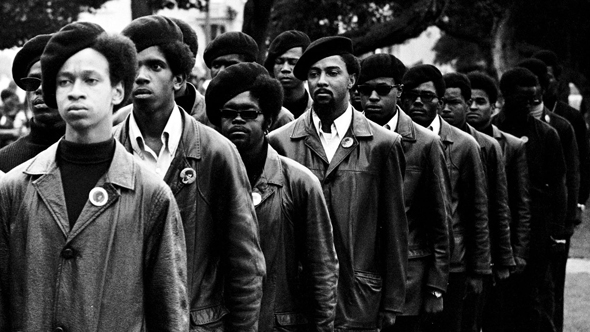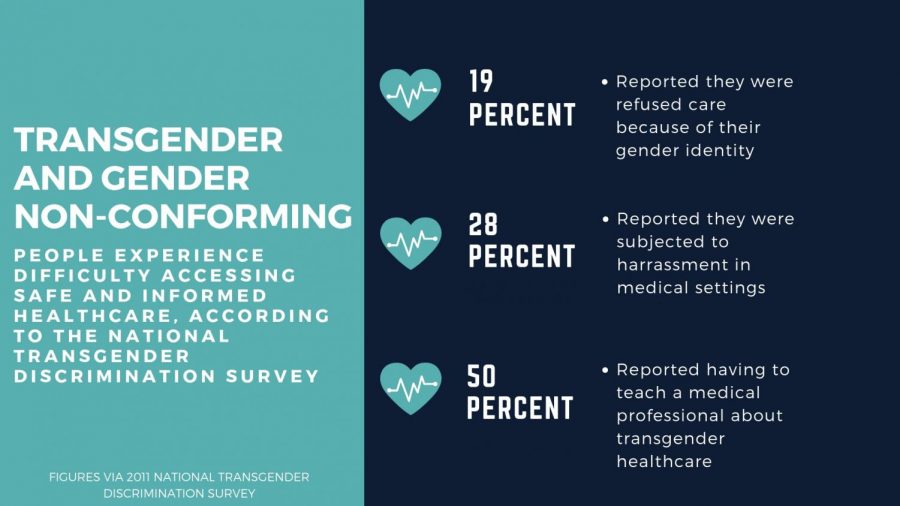As we have seen in many of our theoretical and literary works, the theme of power is evident. Although many individuals work hard for status and use their power for the good of our society, there are many instances where that is not evident. In order to fully understand the profound effects that the corruption of power has on a society, I believe that it is useful to compare global scenarios. By doing this, we can analyze the same issue in regards to corrupting power, while spotting the differences in cultures, geography, and policies.
Specifically, we will discuss the corruption of power amongst officials in politics and government in Haiti and India. In both situations, the citizens face multiple systemic injustices, including restrictions in the systems of healthcare, politics and economics. Both countries have different polices and forms of government, which proves that regardless of logistics, individuals globally have a thirst for power.
To start, lets discuss the definition of power. According to Forbes.com, there are multiple definitions of power. The “outside-in” perspective supports power as a position or title, which can be interpreted as authoritative or controlling, resulting in supremacy. The contradicting perspective of “inside-out” is maintained by the individual and their drive to succeed based off their personal choices, actions and thoughts (Miller, 2018). Based on these definitions, there are multiple ways to interpret power and apply it to these global situations. The contrasting definitions of power both encompass traits of community, climate, competition, and the economy. Whether these depictions of organizational power are fairly integrated or abused amongst officials, it is important for us to note that they all have an influence on our actions, beliefs, and behavior. We often see a lack in the balance of power amongst authority and citizens, as the climate and community are at stake due to competition and the economy. The following examples in Haiti and India are clear examples of this theme.
First, I will introduce the unrest in Haiti while citing the article “Specter of unrest, violent repression looming over Haiti, warns UN rights office” posted by the United Nations News.
Since 2019 to present day, the increased political tensions and criminal activities in Haiti have contributed to systemic injustices within the health care system and legal system, which resulted in the violence of authorities. Individuals in Haiti are fighting for their human rights to peacefully protest and for their freedom of speech. In response to these “patterns of violation”, barricades by authority prevented the people of Haiti from receiving medical care and from an economic standpoint, were forced to pay unnecessary “passage fees”.
This is unbelievable and these rights should not have to be fought for. The authorities are abusing their power and sadly the citizens are paying the price, literally. It is clear that authority felt a threat to their power, as they dramatically denied citizens access to healthcare. In the eyes of leadership, these actions are clearly going against the principles of the common good, as closing healthcare access is not a solution to leadership issues. The President of Haiti and government officials felt a threat to their power and are using their authority to corrupt the lives of innocent citizens. The abuses were clearly fueled by the lack of accountability of authorities.
However, according to the article, the OHCHR pushed for a reform in law enforcement and to follow the international norms for handling protests, while still protecting the rights of individuals to peacefully protest. With this being said, the government of Haiti is facing accountability to ensure that they do not violate human rights.
Awesome! This is an example of how powerful our civil rights and speech actually are!

Jovenel Moïse
On January 15, 2021, the people of Haiti demanded for a new president, as they believed Jovenel Moise is abusing his power. In the article “Haiti Braces for Unrest as a Defiant President Refuses to Step Down”, the New York Times explains that Moise has refused to hold elections in the past four years and is changing the country’s Constitution so that he can remain in office.
This is a clear example of corruption of power and the selfishness of a leader. Moise is clearly threatened by becoming overthrown and denounced, therefore is abusing his power to restrict the power of his citizens. Of course, a leader should, to an extent, regulate and monitor the activity of citizens, but by no means is Moise doing that by restricting citizens of voting in elections and changing the nation’s set constitution.
By using the analysis of power from Forbes.com, we can see from an “outside-in” perspective that Moise is a selfish individual who is fueled by his own success and is acting more as a dictator rather than a leader. However, we also can use the “inside-out” perspective to analyze Moise’s actions of his personal choices to hold this powerful position and the personal humiliation/ failure that he will face if removed from his position. Overall both perspectives show us that he is an individual who refuses to take accountability of his failed leadership, and the citizens of Haiti are facing the consequences.

Unrest in Haiti
The second story I would like to discuss is the issues in India regarding agriculture. In India, farmers are rebelling against the new agriculture laws, initiated by the government of Prime Minister Narendra Modi. According to the CNN article titled “Farmers across India have been protesting for months. Here’s why” by Jessie Yeung, these new laws allow farmers to sell goods to anyone at any price. Previously, they used the structured system of selling at auction at the Agricultural Produce Market Committee. At the Agricultural Produce Market Committee, all farmers sold at a government- agreed minimum price to select groups.
At first, I thought this was a positive for farmers and the direct market, but there many issues with selling individually.
The farmers argue that the new laws will cause inflation and allow for large businesses to decrease prices. The problem is not individual sales; but meeting the minimum price in years of good harvest. The new laws resulted in farmers being suppressed of their right to work, generate an income, and provide for their families.
Clearly, there was an internal issue amongst the government when implementing these laws and it created a chain of issues effecting the daily lives of farmers.
In response to the new laws and the tractor parade protest, thousands of farmers peacefully protested. However, the police violently fired tear gas, used excessive force, and imposed internet shutdowns for “public safety”.
Again, the threat of protesting and loss of power was handled with violence, unnecessary weapons, and force, which is due to the loss of authorities control.
In addition, the farmers are the biggest voter bloc in their country and the angered farmers will not participate in the upcoming election. Therefore, a central political issue resulted within the Modi and his Bharatiya Janata Party (BJP) party due to an absence of votes.
One thing on top of another here! A chain of unfortunate events and issues resulted from that one change to the agriculture laws.

Farmers and workers protest in India
Going back to the definitions of power, we can apply the “outside-in” perspective to analyze the use of tear gas and excessive force on citizens who again were peacefully protesting. The corruption of power within the government resulted in the lack of votes and suppressed voices of citizens. The “inside-out” perspective is similar to that of Moise, as authority is fearful of losing their respect and status, therefore are using force to secure their power, which is clearly not a humane act.
As seen in both Haiti and India, there are organizational issues within the power system, which is evident in politics, the economy, and healthcare. The threat of the power of a nation’s citizens and their power of civil rights is also an issue that many leaders cannot balance. The balance of power is key for a successful leadership and relationship within a nation. Sadly, we often see an imbalance and misrepresentation of the citizens, due to the controlling “dictatorship” rather than leadership.
As we have learned multiple times in class, we live in a very competitive world. To have a deeper understanding of power, let’s think about social competition. There is competition in school, the workplace, maintaining status, and physical expectations. Individuals often feel threatened by others and will use means of bullying, stealing, or other hatred to feel superior. In class, we have learned about individual competition and corruption of power, which includes, “one-other” theories, “otherness”, and “master-slave dialect”. Now, transition those examples into politics and leadership roles. We can see how easy power can be corrupted, especially as a high positioned leader who oversees groups of individuals and systems. Although it is very easy to become a selfish individual, it is not an excuse for the events in Haiti and India. As William Gaddis once said, “Power doesn’t corrupt people. People corrupt power” (Gaddis). In an effort to move forward, we can use definitions of power, examples we learned in class, and global scenarios to raise awareness of corruption and continue to use our natural born rights and freedom of speech to fight back.
Sources:
“ABSOLUTE POWER CORRUPTION QUOTES Image Quotes at Hippoquotes.com: Corrupt Quotes, Catchy Phrases, Powerful Quotes.” Pinterest, www.pinterest.com/pin/550424385688603899/.
Admin. “President Jovenel Moïse Is Rallying for His New PM.” Journal Haïti Progrès – Haitian #1 Newspaper – Jounal Ayiti, 11 Sept. 2020, haitiprogres.com/news/2019/04/04/president-jovenel-moise-is-rallying-for-his-new-pm/.
Britannica, The Editors of Encyclopaedia. “Bharatiya Janata Party”. Encyclopedia Britannica, 29 Mar. 2021, https://www.britannica.com/topic/Bharatiya-Janata-Party. Accessed 2 April 2021.
“Home.” OHCHR, www.ohchr.org/EN/pages/home.aspx.
Isaac, Harold, et al. “Haiti Braces for Unrest as a Defiant President Refuses to Step Down.” The New York Times, The New York Times, 7 Feb. 2021, www.nytimes.com/2021/02/07/world/americas/haiti-protests-President-Jovenel-Mois.html.
Miller, Rick. “What Is Power, Really?” Forbes, Forbes Magazine, 25 Oct. 2018, www.forbes.com/sites/rickmiller/2018/10/25/what-is-power-really/?sh=2ca8690742a7.
“PSAC Stands in Solidarity with the Farmers and Workers of India.” Public Service Alliance of Canada, psacunion.ca/psac-stands-solidarity-farmers-and-workers-india.
“Specter of Unrest, Violent Repression Looming over Haiti, Warns UN Rights Office | | UN News.” United Nations, United Nations, news.un.org/en/story/2021/01/1082462.
Sutton, J, and E Keogh. “Social competition in school: relationships with bullying, Machiavellianism and personality.” The British journal of educational psychology vol. 70 ( Pt 3) (2000): 443-56. doi:10.1348/000709900158227
Yeung, Jessie. “Farmers across India Have Been Protesting for Months. Here’s Why.” CNN, Cable News Network, 15 Feb. 2021, www.cnn.com/2021/02/10/asia/india-farmers-protest-explainer-intl-hnk-scli/index.html.








